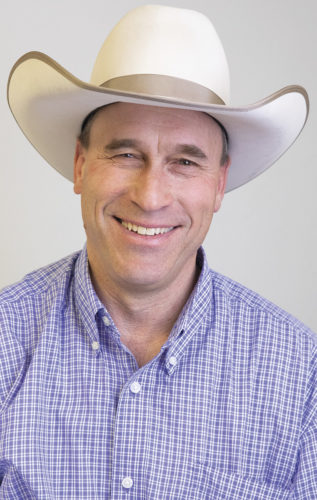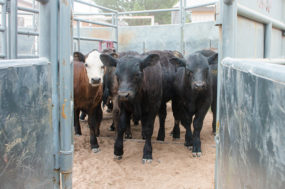The teen years kind of changed his attitude and work ethic, but we laid a good foundation early on that will serve him well when his brains come back.
We were lucky enough to have Fred, our first kid horse. Fred was a pretty little palomino gelding who never was much of a cow horse but was a heck of a babysitter.
Every one of my kids learned to ride on Fred. The kids all loved him, and it was a sad day four years ago on Thanksgiving weekend when we found him lying dead in the Carl Black pasture at the age of 25.
Our neighbor brought his backhoe over, and we buried Fred with honors right where he lay.
As a working ranch horse, Fred wasn’t worth a pile of road apples, but you couldn’t have offered me enough money to sell him. (Well, I may have entertained offers, but that’s not the point.)
You needed a half-acre to turn him, and he couldn’t outrun an old stifled cow, but he gave my kids confidence.
He taught them to not doubt themselves. That’s a lesson that most of us have probably been taught. But time and life experience tend to tarnish the luster of that educational jewel.
When Stensen (number four kid) was 5, he was helping us trail some cows. After lunch, my brother had helped him climb back on Fred.
However, uncle Luke had forgotten to tighten the cinch on Stensen’s saddle. When he trotted off after a straggler, Fred dodged some sagebrush and the saddle slid right under his belly, leaving Stensen sprawled out supine directly under Fred.
It took us a couple of minutes before we noticed the 5-year-old kid hollering and trying to slide the saddle back up onto his horse.
Fred hadn’t moved an inch when the saddle slid underneath him. He just stood and waited patiently for someone to remedy the situation. Stensen never even gave a second thought to the potential peril.
When Peyton (number five kid) was 4, we were gathering cows on the mountain. The country was rough and steep, and the creek bottoms were overgrown with brush and trees.
Good places to cross the creek were few and far between, and sometimes you just had to put your head down, hang onto your hat and plow on through.
At one such crossing, I had to duck under a low-hanging branch that was about chest high as my horse scrambled up the bank after wading across the rocky, boulder-strewn creek.
Peyton and Fred were following about 20 yards behind me. I didn’t even turn around to check on their crossing until I heard Peyton holler out, “Whoa, Fred!” When I looked back, I saw Peyton suspended 6 feet in the air, hanging onto the low-hanging mahogany branch.
It looked like a scene from a Don Knotts Western. Fred had stopped the second he felt his feather-light load slip off his back.
Peyton’s feet were dangling in the air, but he could just barely reach Fred’s butt with his swinging feet enough to keep his balance and prevent him from crashing to the ground.
I got off my horse and walked back to the comedic scene. I clucked to Fred and backed him up a couple of steps so his hapless rider could slip back down into the saddle, and we were on our way again, none the worse for the wear.
I think of Fred and miss him just about every day each winter when we make the turn on the feed grounds near where he is buried.
Part of it is just sentimentality that comes naturally when you lose a critter that was somehow part of the family. Anybody who has ever had and lost a good dog or favorite horse knows what I’m talking about.
But more than that, I’m thankful for what he unwittingly yet patiently gave to my children. Before they were jaded by texting and Facebook and basketball practice and homework, before they felt the sting of gossip and peer pressure and criticism, they learned the value of patience and unconditional loyalty and perfect friendship.
They learned to doubt their doubt before they doubt their faith and confidence in what is right and good. At Thanksgiving time, that’s a good lesson to remember.
Whether it was taught by good God-fearing people who fearlessly started a new life in a harsh, unknown land in 1620 or by an old palomino gelding in 1998, the value is the same. ![]()







